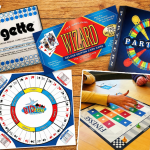Bridge players are not gamblers in the classic sense. They’re thinkers, planners, tacticians. But they share a digital space with casino players who—especially in the Finnish market—are increasingly leaning toward games of skill and strategy.
Finnish Online Casinos: The Hidden Side of Card Gaming

The Surprising Link Between Bridge Strategy and Finnish Online Gambling
Bridge players and online casino enthusiasts might seem like inhabitants of different worlds. One plays with bids and brains; the other with bets and chance. But under the digital surface, these universes are blending in unexpected ways—and nowhere is that more apparent than in Finland.
This small Nordic country has become a global trendsetter in online gambling. But more interestingly, it also offers a blueprint for how digital card games, including contract bridge, could evolve in the age of fast-paced, gamified play.
Finland: A Nation of Online Card Enthusiasts
Finland consistently ranks among the top countries for digital infrastructure, internet literacy, and—less obviously—online casino engagement. A surprising number of Finnish citizens play online slots, poker, and other digital games daily. But it’s not just about chasing jackpots.
What sets Finnish players apart is their preference for high-quality, regulated platforms and a deep-rooted respect for logic-based gameplay. This mentality overlaps with the skillset of a seasoned bridge player: analytical thinking, strategic foresight, and pattern recognition.
So when we talk about finnish online casinos for gambling, we’re not just referring to flashy slots or roulette wheels. We’re also talking about a culture that values intelligent play, user protection, and psychological mastery.
From Bridge to Blackjack: What Crossovers Exist?
Let’s explore where bridge and online gambling meet.
- Probability Skills – Whether you’re calculating the odds of a finesse in bridge or the house edge in blackjack, the fundamental math is similar.
- Pattern Recognition – In both arenas, players learn to spot opponent tendencies, memorize card distributions, and react in real time.
- Risk Management – Every bridge bid involves risk assessment. So does every wager in an online casino.
What’s more, online casinos in Finland often include traditional card games like blackjack, poker, and even bridge simulations. Some platforms are experimenting with AI-driven opponents that mimic real-world strategies—something familiar to bridge AI enthusiasts.
Gamification of Bridge: Evolution or Distraction?
Gamification is changing how people interact with classic games. Bridge has seen apps like Handle and IntoBridge offer new formats with curated deals, ranking systems, and daily challenges. Online casinos, meanwhile, are old pros at keeping users engaged with achievement badges, loyalty rewards, and flashy UX.
Could bridge adopt more of these elements? Or should it resist the pull of dopamine loops?
Some argue gamification threatens the purity of a skill-based game like bridge. Others claim it’s the key to keeping younger generations interested. Finnish online casinos, known for their sleek interfaces and high user retention, may offer a middle path: intelligent gamification that enhances, not distracts.
The Regulation Question: What Bridge Can Learn
Another under-discussed link is regulation. Finland’s online casinos are known for being among the most tightly regulated in Europe. This ensures fair play, player protection, and transparency—principles that resonate with the ethics of tournament bridge.
Bridge, especially at the international level, often struggles with consistency in enforcement, director calls, and online cheating scandals. Learning from the Finnish gambling authority’s practices could help the bridge community design more robust digital safeguards.
Could we one day see a global digital bridge license, similar to those required by regulated online casinos? It’s not as far-fetched as it sounds.
Final Thoughts: Why This Convergence Matters
Bridge players are not gamblers in the classic sense. They’re thinkers, planners, tacticians. But they share a digital space with casino players who—especially in the Finnish market—are increasingly leaning toward games of skill and strategy.
In this convergence lies an opportunity. A chance to modernize bridge, make it more accessible, and learn from the best of the online gaming world without compromising integrity.
So the next time someone mentions finnish online casinos for gambling, don’t dismiss it as irrelevant to the world of bridge. Instead, consider it a mirror—showing where traditional mindsports could go, and what they might become.








